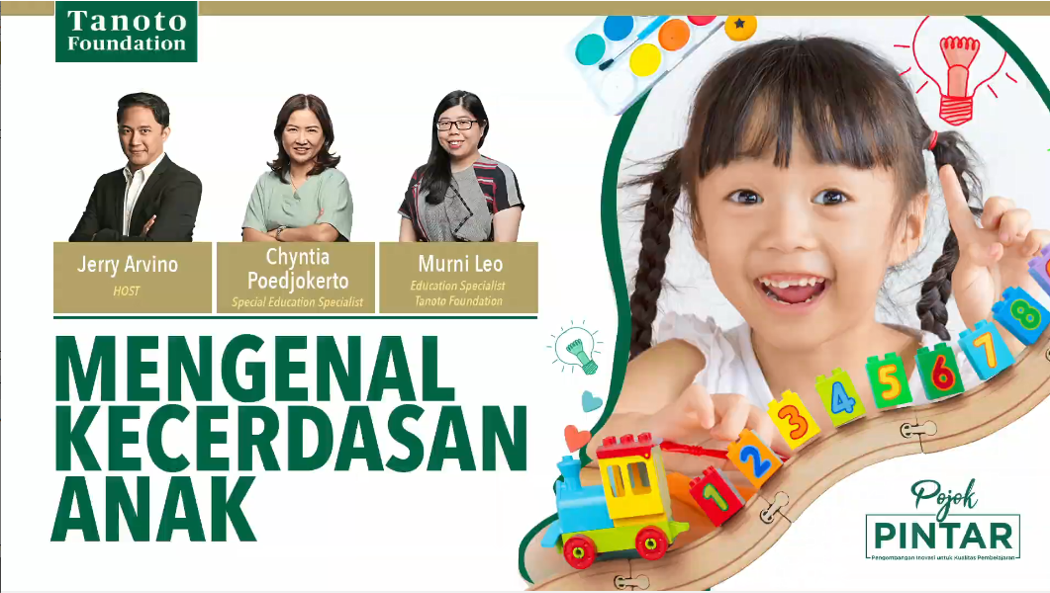So, you think you have met “the one” and want to spend the rest of your life with them? Take a step back before planning a wedding as marriage is hard work.
Marriage is a never ending process of blending two different minds into one. It forces you to change, adapt and tolerate certain things. But, it is also very rewarding when you can get through all the challenges that life throws at you as a couple.
In the first episode of Selalu SIGAP, our host Anastasia Pradhita asks Anna Surti Ariani, known as Nina, Chairwoman of the Indonesian Clinical Psychologists Association Jakarta, and Widodo Suhartoyo, Senior Technical and Liaison Advisor Early Childhood Education and Development (ECED) at Tanoto Foundation, the things any couple should think about before getting married.
This episode covers:
a. The right age to get married
b. Three aspects to prepare before getting married
c. The importance of conflict management in a relationship
In the past year, we saw more young Indonesians getting married. The Directorate General of Religious Court recorded that there were 34,000 applications for the exemption of marriage age (under 19 year old) between January to June 2020, from a total of 23,700 cases in 2019.
The National Population and Family Planning Board (BKKBN) itself recommends 21 as the minimum age for women and 25 for men to get married.
But irrespective of age, our panel listed three main things to consider before getting married.
Emotional Maturity
Marriage is complex, hence it requires emotional maturity or the ability to manage emotions.
“If you frequently feel stressed out or emotional, don’t get married,” said Nina.
There are many things that can trigger conflicts in marriage, varying from big issues, such as different values or parenting styles, to small problems, such as household chores. Therefore, those who plan to get married need to be aware that they are two different individuals.
If they are not aware of the differences and cannot manage their emotions well, then it will lead to frequent arguments.
“It’s really tiring to be in a marriage that continuously has conflicts,” Nina said.
One of the ways to have emotional maturity is by accepting our partner the way they are.
“Couples need to be able to adapt, tolerate and comprise,” said Widodo.
Widodo suggested couples make a social “contract” before getting married, defining their shared responsibilities to solve the differences that might come in the future.
Social Maturity
“There are three magic words that most of us find it difficult to say, ‘sorry, please and thank you’,” said Widodo.
But these magic words are part of our social maturity and enable us to function properly as adults.
Social maturity provides us the ability to form a good relationship with our partner and others, and influences every aspect of our lives.
By having social maturity, it can help us to see our partner more accurately.
“Once again, we need to be aware that they are different from us, there must be a reason behind their behaviors,” said Widodo.
With regard to our social relationship, Nina said that a good relationship with others will also bring benefits as it creates a good support system, which may help you solve conflicts within your marriage. Social maturity also helps us to define when to and not to share our conflicts to our support system.
Life Skills
If you don’t know how to wash the dishes or cook, then you are not ready for marriage.
Life skills are basically simple tasks that can be performed by anyone, regardless of their gender. Widodo said most arguments in the marriage are triggered by household chores like these, hence one needs to master these life skills before tying the knot.
“If they don’t prepare it properly, these small issues can cause problems or even divorce,” he said.
In addition to the three aspects above, both speakers stressed the importance of communication in marriage as it is the key to solve issues and understand their partner.
“It goes without saying that good communication is important in marriage,” said Widodo.
Couples can try to enhance their communication skills while they are dating by communicating and solving issues together.
“Frequent arguments while dating are not red flags. If they can manage the conflicts properly, it can help to build a healthy marriage,” said Nina.
But most importantly, before saying “I do”, couples have to set marriage goals together. “They should think that they get married to form a quality family, not to get divorced,” said Widodo.
–
Selalu SIGAP is a casual talk show that discusses Early Childhood Education and Development (ECED) in Indonesia. The program is hosted by Tanoto Foundation, an independent family philanthropy organisation founded by Sukanto Tanoto and Tinah Bingei Tanoto in 1981.
Get to know more http://bit.ly/CariTahuKesiapanmuSebelumMenikah





